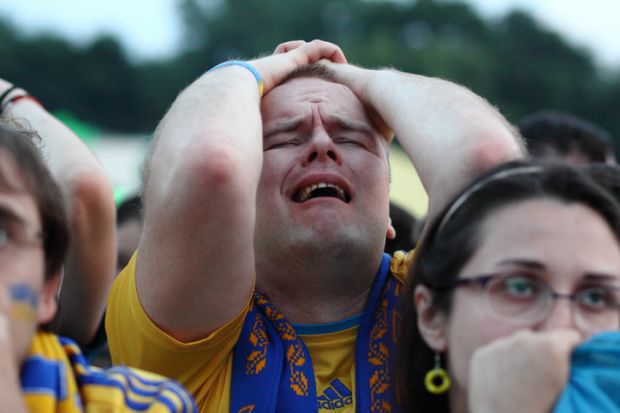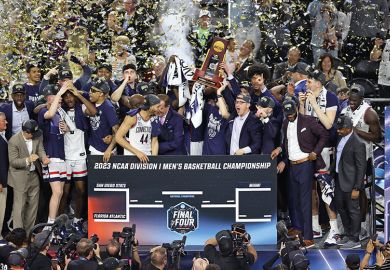It is no secret that following a struggling football team can be difficult for fans, but new research has found it can also be detrimental for universities associated with big clubs.
Studies around admissions have typically focused on a university’s student satisfaction scores or rankings tables, but researchers wanted to test if a local football team’s performance could be a factor.
The study, published in the journal Economics Letters, explores how relegation from the English Premier League (EPL), the top flight of English football, affected admissions outcomes of universities that have clear name associations with clubs.
It found that domestic undergraduate admissions fell by an average of 4 per cent for universities associated with teams that were relegated for one year from the Premier League – and up to 8 per cent if they were out of the league for longer.
While academics have frequently discussed the boost that US college sports teams provide for higher education, the paper is thought to be the first to explore the impact on universities of the Premier League – one of the biggest brands in world sport.
“In principle, the visibility of the EPL brand should be an advantage for UK universities, particularly if they share a name as well as a city with a successful EPL team,” Carl Singleton, senior lecturer in economics at the University of Stirling and lead author of the study, told Times Higher Education.
The paper said that the evidence that the “drastic cut-off” from the Premier League affected admissions prospects perhaps explained why some UK universities had visibly aligned with their local football teams, either by sponsoring a team or buying the naming rights to a stadium.
Researchers said the study, which analysed Higher Education Statistics Agency (HESA) admissions data, suggested that “university executives should support their local teams”.
Leicester City’s stunning Premier League title win in 2016 was seen as a huge boost to the city’s universities at the time. And though it is in the lower leagues, Wrexham University was hoping to see a boost in US applications after local club Wrexham AFC was taken over by Hollywood actors Ryan Reynolds and Rob McElhenney.
Dr Singleton said some institutions, such as Bournemouth University, had been quite explicit in their marketing materials about being the home of top-flight football teams – but there were other ways they could benefit, he added.
“Some universities may not share a name or city with an EPL team, but they have excellent sports facilities that could be shared with football clubs or used to host visiting teams on tours,” he said.
“Universities could also look beyond football. For instance, it is plausible that Loughborough benefits from awareness in India of it being the home of the England cricket team.”
The research linked 20 different football clubs that had appeared in the Premier League between 2000-01 and 2019-20 with 25 different universities associated with them. It excluded teams based in Greater London, Manchester and Sheffield because of the difficulty of associating performance with one particular university.
“Our findings contribute to a wider literature suggesting that universities can leverage their association with prominent sporting success,” the paper concludes.
“But they also imply that universities can be somewhat beholden to that success or lack thereof.”
Register to continue
Why register?
- Registration is free and only takes a moment
- Once registered, you can read 3 articles a month
- Sign up for our newsletter
Subscribe
Or subscribe for unlimited access to:
- Unlimited access to news, views, insights & reviews
- Digital editions
- Digital access to THE’s university and college rankings analysis
Already registered or a current subscriber?








